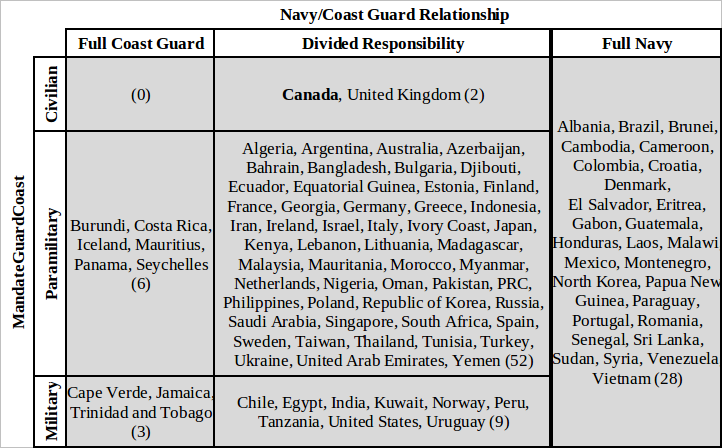*Moderator's Note: This article was original published in The Nova Scotian on 07 February 2011.
Many have seen the news on increased piracy in the Horn of Africa and that mariners of all nations still remain at high risk in this area. The desperate actions of economically disadvantaged pirates off the coast of Somalia have an economic impact on Canadian wallets as a result of increased shipping prices and climbing insurance rates. Although quite clearly these acts of piracy are not in Canadian waters, the navy is there to protect Canadian interests by contributing warships, such as HMCS Fredericton in recent past, to the Coalition campaign off the Horn of Africa. We perform these maritime security operations and counter-piracy operations by employing intelligence and surveillance to police the maritime areas, always watchful for the anomalies or warning signs which would cause us to interdict and investigate a suspicious vessel. Surveillance and interdiction are roles used by navies around the world as the primary means to investigate vessels employed in unusual practices or places. As such, it is the primary tool to stop unlawful activity on the high seas such as piracy, narcotics smuggling, weapons smuggling and terrorism.
The Canadian navy is not acting alone in this recent mission; rather, the ships are assigned to a coalition and are acting in company with many other international partners who are all taking an active role in combating piracy. A large proportion of European and North American trade relies on unfettered shipping from Asia through the Suez Canal by way of the Gulf of Aden. In this area, the overall risk to shipping as a result of acts of piracy escalated to an unacceptable level and action had to be taken. In order to reduce the risk to shipping, nations from around the globe, including China, Japan, Malaysia and South Korea, deployed their navies to patrol the shipping lanes in the Gulf of Aden. Although the long term campaign to eliminate piracy in these waters is difficult, we must continue to defend our national interests, ensuring that sea lanes become a safer place for international security and prosperity.
Furthermore, a deployed combat-capable Canadian warship and crew that are engaged in maritime interdiction efforts such as these also offer the Canadian government additional flexibility. It does so by being easily re-deployed or re-tasked as circumstances and priorities change. Such was the case when HMCS Ville de Quebec was re-assigned from her NATO counter-terrorism operations in the Mediterranean, in response to an urgent Canadian government request, to escort several vessels for the UN World Food Program (WFP) under threat of pirates which were preventing the delivery of vital aid to Somalia. At that time, 90% of the WFP aid was transported by sea but could no longer transit the pirate-infested waters off the African coast. Ville de Quebec, without additional supplies, training, or equipment, was immediately re-deployed to the African coastline to protect the merchant ships from pirates allowing these vessels to deliver vital lifesaving aid.
Thus, by being constantly prepared for high-intensity operations when we send a ship to a theatre of operations, we are also able to provide a full spectrum of roles – from the maritime security and interdiction role to a humanitarian assistance mission to a conflict where warfare skills and lethal force are required. All of these roles have the effect of fighting chaos in areas that need stability, which leads to keeping the global trade flowing as it should.
My goal in giving some general examples of our recent missions is to highlight some of the core aspects of our job as the navy, and how our ships in action have been contributing to maritime security, which directly affects Canadians. Canada does not have a navy for the sake of having ships. Canada has the navy that it requires to meet the expectations of Canadians as determined by our geography.


